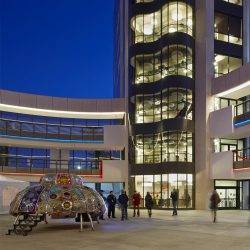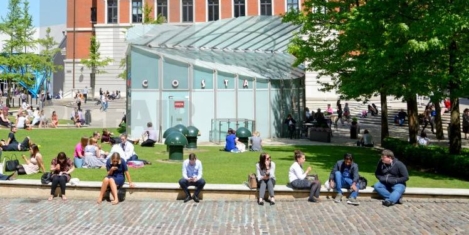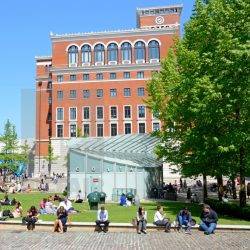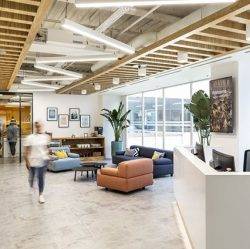To provide the best experiences, we use technologies like cookies to store and/or access device information. Consenting to these technologies will allow us to process data such as browsing behaviour or unique IDs on this site. Not consenting or withdrawing consent, may adversely affect certain features and functions.
The technical storage or access is strictly necessary for the legitimate purpose of enabling the use of a specific service explicitly requested by the subscriber or user, or for the sole purpose of carrying out the transmission of a communication over an electronic communications network.
The technical storage or access is necessary for the legitimate purpose of storing preferences that are not requested by the subscriber or user.
The technical storage or access that is used exclusively for statistical purposes.
The technical storage or access that is used exclusively for anonymous statistical purposes. Without a subpoena, voluntary compliance on the part of your Internet Service Provider, or additional records from a third party, information stored or retrieved for this purpose alone cannot usually be used to identify you.
The technical storage or access is required to create user profiles to send advertising, or to track the user on a website or across several websites for similar marketing purposes.
 While the recent Finnish pilot of universal basic income had mixed results, a trial of the other most talked about solution to our problem with work – the four day week – has been reported as far more promising. A New Zealand financial services firm called Perpetual Guardian switched its 240 staff from a five-day to a four-day week last November and maintained their pay. The results (registration) included a 20 percent rise in productivity and improved staff wellbeing and engagement.
While the recent Finnish pilot of universal basic income had mixed results, a trial of the other most talked about solution to our problem with work – the four day week – has been reported as far more promising. A New Zealand financial services firm called Perpetual Guardian switched its 240 staff from a five-day to a four-day week last November and maintained their pay. The results (registration) included a 20 percent rise in productivity and improved staff wellbeing and engagement.














 Although the majority (85 percent) of all business decision-makers agree that workplace health is a top priority, employees still aren’t being as open as they should, often playing down their illness or injury (32 percent) or feeling too busy to miss office hours (27 percent), a new survey by Bupa and Babylon Health has claimed. Worry over missing work is a key driver in avoiding appointments as seven in 10 employees (70%) have delayed or put off seeking medical advice when they should, despite the majority of business leaders having no issue with colleagues taking time off to deal with health issues. Men, young workers (18-34), Londoners and those employed in SMEs are all more likely than average to delay or put off seeking help. The data also shows that those in manual roles (vs. clerical) are more likely to shrug off illness or injury. Mark Allan, Commercial Director, Bupa UK, said: “As much as those in decision-making positions really want their employees to put their health first, they’re competing against a strong resistance from those who will strive to soldier on. This is particularly the case with those employees in SME businesses, amongst others.”
Although the majority (85 percent) of all business decision-makers agree that workplace health is a top priority, employees still aren’t being as open as they should, often playing down their illness or injury (32 percent) or feeling too busy to miss office hours (27 percent), a new survey by Bupa and Babylon Health has claimed. Worry over missing work is a key driver in avoiding appointments as seven in 10 employees (70%) have delayed or put off seeking medical advice when they should, despite the majority of business leaders having no issue with colleagues taking time off to deal with health issues. Men, young workers (18-34), Londoners and those employed in SMEs are all more likely than average to delay or put off seeking help. The data also shows that those in manual roles (vs. clerical) are more likely to shrug off illness or injury. Mark Allan, Commercial Director, Bupa UK, said: “As much as those in decision-making positions really want their employees to put their health first, they’re competing against a strong resistance from those who will strive to soldier on. This is particularly the case with those employees in SME businesses, amongst others.”
 With the rise of both cloud-based technology and the worldwide gig economy, the last ten years of the 21st century have seen some near-revolutionary changes in workplace practice. Entrepreneurs everywhere have been more than happy to make use of these developments, taking advantage of the new business models these changes have brought. For example, IDG found that
With the rise of both cloud-based technology and the worldwide gig economy, the last ten years of the 21st century have seen some near-revolutionary changes in workplace practice. Entrepreneurs everywhere have been more than happy to make use of these developments, taking advantage of the new business models these changes have brought. For example, IDG found that 






 It’s been
It’s been 










February 21, 2019
How do we reach consensus about what constitutes good design? 0
by Paul Goodchild • Comment, Furniture, Technology, Workplace design
(more…)